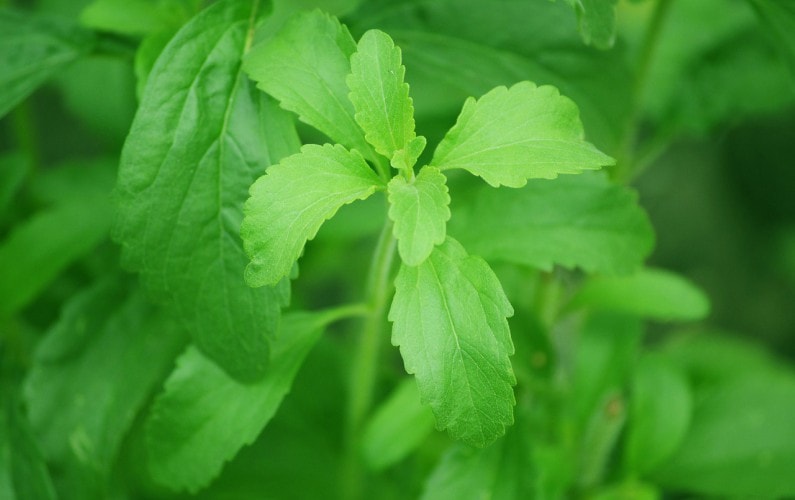Five Best Natural Sweeteners That Are Actually Good For You
You know that added sugar is probably the single worst ingredient in the modern diet.
Addiction to sugar is real.
You might wonder: are there any sugar alternatives at all that are actually good for you?

Many consume way too much sugar without even knowing it. After all, it is everywhere. It is indeed a part of all processed foods. That is why we prefer to eat whole foods, don’t we?
Are you finally deliberately choosing to get healthier and looking for options to replace the white refined sugar for a healthier option?
One real benefit of giving up sugar is the experience of better health, energy, vitality, and most importantly, positive mood.
In this article, I won’t go into the details of side effects using the white refined sugar, but rather I will highlight 5 best natural sweeteners that are actually good for you.
Stevia
Stevia is a natural, zero-calorie herbal sweetener, extracted from the leaves of a South American shrub known as Stevia rebaudiana. Stevia has been used for hundreds of years and can be found today in foods all over the globe.

Stevia is an excellent source to maintain a healthy and balanced diet, and might also help with weight-loss.
Organic Liquid Stevia is my go-to when making smoothies and smoothie bowls, it’s easy to use in various beverages like the occasional coffee, ice-tea, lemonade…
Fresh or Frozen Fruit
Using the wholefood sources is by far the best option. Fruit contains natural sugars, which are a mix of sucrose, fructose and glucose. Many people have heard that sugar is bad, and think that this must also, therefore, apply to fruits.
Fructose is only harmful in excess amounts, and not when it comes from fruit. It would be incredibly difficult to consume excessive amounts of fructose by eating whole fruits.

For example, berries are naturally low in fructose and it is easy to mix them into the morning breakfast bowl, whether that might be made with chia seeds, or gluten-free oats, or perhaps greek yoghurt. Bananas are also an excellent choice and are high in fibre and potassium.
Our bodies metabolize fruit sugar differently than processed or added sugars. Everyone knows eating a variety of fruits (and vegetables) is good for a healthy balanced diet, yet not many are putting this into the practice.

Almost everyone benefits from eating more natural fruits. We are talking whole fruit in its natural form. Not juices, no canned fruit (which often contain added sugar). Pure raw fruits.
Monk fruit
Monk fruit sweetener has been used for centuries in traditional Chinese Medicine. Also known as lo han guo or Swingle fruit, this small round fruit’s seeds and skin is removed, and crushed to collect the juice, which is then dried into a concentrated powder.
This unique sweetener doesn’t contain fructose or glucose. It is also another zero-calorie sweetener, therefore great for maintaining a healthy weight. The taste of monk fruit is very relative. Some reporting bitter aftertaste.
I find the taste similar to stevia – which at the very beginning of the use had a bitterish aftertaste, but this greatly diminished once my taste buds got used to the taste.
Monk fruit sweetener is going popularity and it is versatile. It can be added any liquids – coffees, teas, smoothies, as well as to the sauces, yoghurts, and porridge. It makes an excellent sugar alternative to use for cooking and baking.
Dates
Dates – Phoenix Dactylifera have been a staple food of the Southeast Aisa and North Africa for thousands of years. Considered to be the oldest cultivated fruit in the world, fossil evidence indicates that dates go back at least 50 million years ago.
Throughout history, until now, they have been recognized as an energizing staple food, and are sometimes referred to as the “bread of the desert” and “cake for the poor”.
The date fruit is considered to be a good source of high nutritional value food. It is rich in carbohydrates, dietary fibres, proteins, minerals and high in B vitamins.
Dates have been recognized to have many medicinal properties, especially when consumed alone or in mixture with other medicinal herbs.

I love to use pitted dates for the occasional snack, as well as for all of my raw vegan desserts and smoothies. Dates are a delicious companion to savoury dishes including cheeses, meats and vegetable dishes.
Fooditive
An innovative Dutch company ‘Fooditive’ came up with a fantastic product – zero-calorie sweetener made out of unsold pears and apples.
The company introduced the new sweetener to the market in January 2020. At the moment the company is already registered in Sweden, and they hope to expand to Scandinavian countries, as well as UK and Jordan – where the founder is from.
The company chooses organic and non-organic apple and pear waste – from fruit that can not be sold – undersized, bruised or ‘ugly’ fruit – from local Dutch markets and extract the natural fructose through a fermentation process.
Fooditive sweetener is available in three forms: regular (powder), liquid, and syrup.
The company also produces preserving agents made from carrot waste, thickening agents produced entirely from banana skin but doesn’t contain the fruit’s sweetness or smell, and emulsifiers fashioned from potato extracts.
A wonderful eco-friendly company that supports sustainability and circular economy.
“Less bad” natural sugar alternatives
- Local Honey
- Coconut sugar
- Maple syrup
- Molasses

All of the above are far better options than white refined sugar, as they do contain a high amount of antioxidants, minerals and vitamins, however, they are still high in sugar content and should be consumed sparingly – maximum 1-2 teaspoons a day.
There are many foods, that can sabotage your health and wellbeing, but sugar might be the most imperilling. A study published in 2017 confirmed that sugar has a negative effect on long-term psychological health, including depression and anxiety.
Just think about the time when you had too much of ice-cream or a large bowl of pasta. Straight after you eat these kinds of foods, you might feel satisfied, but after a few hours you feel tired, perhaps a bit irritated, cranky, maybe not as sharp mentally as you would like to be, or maybe even a little unhappy and anxious. Remember, all carbohydrates convert to sugar in the body.
Sugar acts like a drug, its consumption triggers the reward neurotransmitter in the brain – dopamine.
Overconsumption of sugar-dense foods and beverages is motivated by seeking temporary pleasure. And this might be driven by not being open/able to deal with the underlying cause – this is more often than not our mental state, our feelings and emotions.
We rarely think about how we are going to feel after we eat sugar-dense foods. We eat at a particular moment, to satisfy our immediate craving, we eat to avoid the emotion that comes up. We feel good shortly after, but later we have to deal with the permanent consequences.
It is simple to break our addiction to sugar, but it’s not easy.
For now, I offer you to don’t beat yourself up. Take one step at the time.
Replace the white refined sugar for the natural sweeteners discussed in this article, that are actually good for you.
I will get into detail on how-to break the sugar addiction once and for all to feel healthier and happier in upcoming articles, so stay tuned.
To your health!

Resources for this article:
- healthline.com
- foodinstitute.com
- health.clevelandclinic.org
- stevia.com
- foodinsight.org
- en.wikipedia.org
- realfoods.co.uk
- goodnet.org
- fooditive.nl
- theconversation.com
- Al-Alawi, Reem A. et al. “Date Palm Tree (Phoenix Dactylifera L.): Natural Products and Therapeutic Options.” Frontiers in Plant Science 8 (2017): 845. PMC. Web. 14 Oct. 2018.

0 Comments